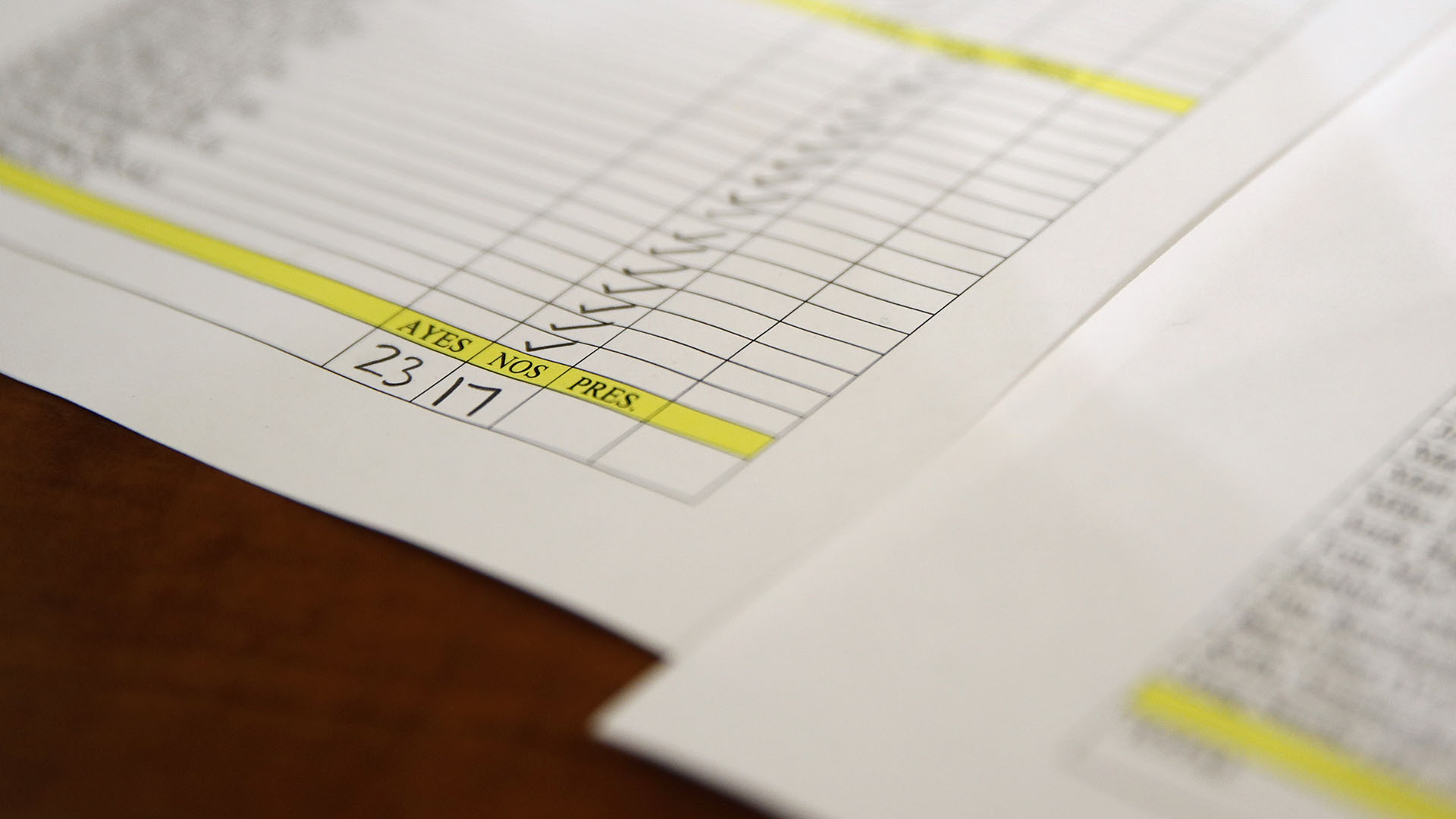
The roll call vote recorded by a clerk after the House Judiciary Committee approved the articles of impeachment against President Donald Trump in Washington, U.S., December 13, 2019. /AP Photo
The roll call vote recorded by a clerk after the House Judiciary Committee approved the articles of impeachment against President Donald Trump in Washington, U.S., December 13, 2019. /AP Photo
Democrats in the U.S. House of Representatives are in the final stages of making their case for the impeachment of U.S. President Donald Trump. They released a 658-page report on Sunday that accused the president of abusing his office and obstructing Congressional efforts to hold him accountable. The report explains the charges against Trump and lays out the evidence. Key lawmakers are declaring where they stand on Thursday's impeachment vote.
The vote will likely be partisan, with few if any Republicans breaking ranks and almost all Democrats expected to approve the charges against Trump.
Trump faces two articles of impeachment: abuse of power for allegedly inviting foreign interference in a U.S. election by pressuring Ukraine to investigate political rival Joe Biden; and obstructing Congress' attempts to investigate the matter by forbidding White House officials from testifying and refusing to release documents.
Trump insists that he's done nothing wrong, tweeting his frustration about the "Impeachment Hoax."
Top Democratic Senator Chuck Schumer said he was aiming for proceedings to start January 6 that would mete out "swift but fair justice" to Trump, even as Republican loyalists acknowledged they were less interested in being impartial jurors than protecting the president.

U.S. Senate Minority Leader Chuck Schumer speaks to reporters after the weekly Democratic caucus luncheon at the U.S. Capitol in Washington, U.S., June 11, 2019. /Reuters Photo
U.S. Senate Minority Leader Chuck Schumer speaks to reporters after the weekly Democratic caucus luncheon at the U.S. Capitol in Washington, U.S., June 11, 2019. /Reuters Photo
He wrote to Senate Majority Leader Mitch McConnell demanding four key witnesses testify, including acting White House chief of staff Mick Mulvaney and Trump's ex-national security adviser John Bolton.
Schumer also sought to set limits on testimony length and questioning of witnesses, proposing a structure that would give Americans what he called "confidence in the process".
"Just the facts. We don't need fishing expeditions," Schumer told CNN. "We're trying to have the kind of justice America is known for, which is swift but fair justice."
Senate rules on impeachment are determined by a simple majority vote in the chamber. Although Schumer is looking to strike a deal with McConnell on the rules, it will be the will of the majority that wins out.
Democrats have bridled at McConnell's recent promise of "total coordination" with the White House, as well as Senator Lindsey Graham's apparent dismissal of the need to be an impartial juror in the process.
"I'm not trying to pretend to be a fair juror here," the Trump loyalist said Sunday, rejecting the charges against Trump as "partisan nonsense".
Lawmakers were beginning a consequential week. House Judiciary Committee chairman Jerry Nadler released a 658-page report Monday outlining the case for impeaching Trump and detailing his alleged wrongdoing, including pressuring Ukraine to investigate Democrats.

House Judiciary Committee Chairman Jerry Nadler (C) hammers during the impeachment hearing at Capitol Hill, Washington, U.S., December 13, 2019. /Reuters Photo
House Judiciary Committee Chairman Jerry Nadler (C) hammers during the impeachment hearing at Capitol Hill, Washington, U.S., December 13, 2019. /Reuters Photo
It alleged severe episodes of "criminal" conduct by the president including bribery, rebutting the Republican argument that Democrats have identified no specific criminal wrongdoing by Trump.
"President Trump's abuse of power encompassed both the constitutional offense of 'bribery' and multiple federal crimes," it said, adding Trump's conduct was "unlike anything this nation has ever seen."
The House Rules Committee was set to meet Tuesday to lay down guidelines for a floor debate on impeachment.
When the Democratic-controlled House convenes Wednesday to weigh the two charges approved by the Judiciary Committee, Trump is expected to become only the third U.S. president to be impeached, after Andrew Johnson in 1868 and Bill Clinton in 1998.
Richard Nixon resigned in 1974 just before a House impeachment vote. Neither Johnson nor Clinton was convicted in the Senate.
(With input from AP, AFP)